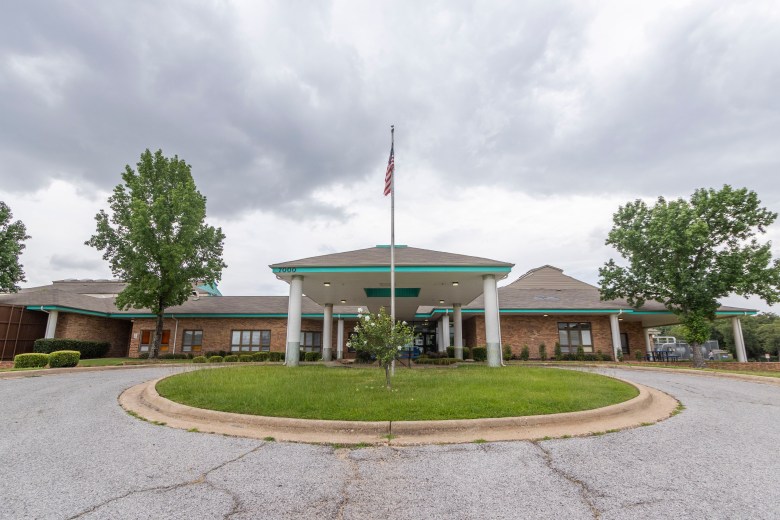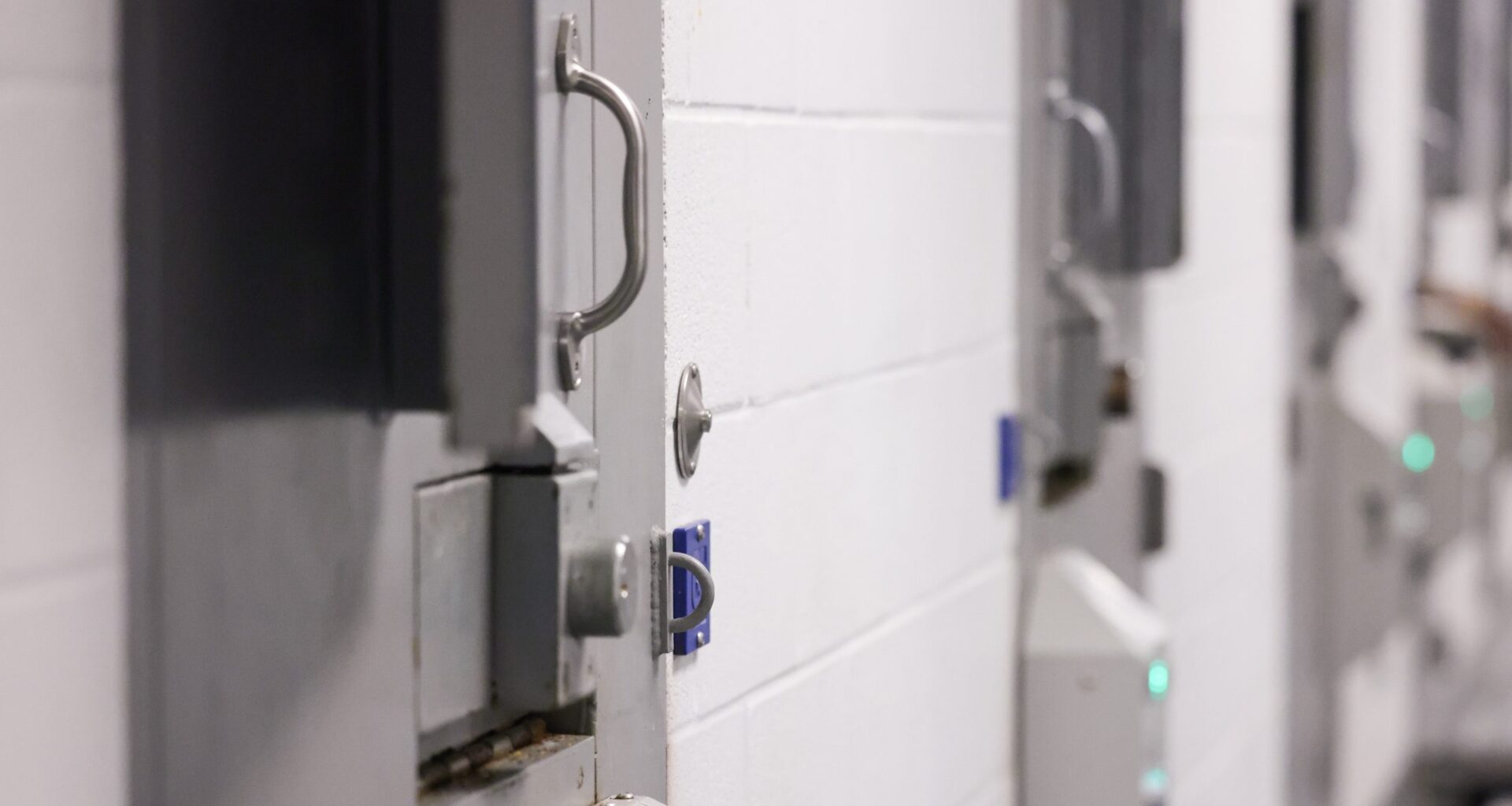My Health My Resources of Tarrant County, or MHMR, granted over $30 million to an Arlington mental health hospital for competency restoration services to help reduce the long state hospital waitlist.
Perimeter Behavioral Hospital of Arlington will receive the state funds. Increasing the number of state hospital beds quickly was not possible, so contracting the services out to local hospitals was proposed as an alternative, said Susan Garnett, CEO of Tarrant County MHMR.
Competency restoration is ordered when an individual accused of a crime is evaluated and deemed unable to participate in their own defense due to mental illness or an intellectual disability. The person is sent to a state hospital for treatment with the goal that they are eventually able to stand trial.
But the waitlist for a bed at a state hospital is long, and people can spend hundreds of days incarcerated while they wait.
“We have a huge backlog of people who are waiting in jails, and nobody can feel good about people just sitting in jail waiting,” Garnett said.
The grant will be distributed over the next three years, but funding for the program is expected to continue so long as the program is successful.
Tarrant County is one of several Texas regions receiving funding for this program, and this is the first time the state has contracted competency restoration out to private hospitals, Garnett said.
In December, Tarrant County commissioners called on the Legislature to fund one of three remedies for the long waitlist: a new state hospital in the county; more beds for county residents at existing hospitals; or a partnership between the county and a private facility.
At any given time, an average of 331 people in Tarrant County’s jail are waiting for a competency restoration bed, the resolution says.
According to MHMR, there are currently 95 people waiting for a non-maximum security bed. The person who has been waiting the longest has been on the waitlist for 257 days. The longest someone has had to wait for such a bed is 458 days.
An average of 1,197 people statewide were on the non-maximum security waitlist at the first of each month in 2024, as shown in data obtained by Austin NBC affiliate KXAN.
The grant will go toward non-maximum security beds. Those needing treatment in a maximum security setting must go to the state hospital, Garnett said.
 The exterior of the Perimeter Behavioral Hospital on July 2, 2025 in Arlington. (Mary Abby Goss | Fort Worth Report)
The exterior of the Perimeter Behavioral Hospital on July 2, 2025 in Arlington. (Mary Abby Goss | Fort Worth Report)
Although the grant will do some good, more funding is needed to treat individuals with mental illnesses so they do not enter the criminal justice system in the first place, said Katherine Godby, co-founder and board chair of the Justice Network of Tarrant County.
“On the micro level, yes, incarcerated persons may indeed move forward, beyond the mental illness,” Godby said. “On the macro level, MHMR, the county, and the Tarrant County jail are refusing to provide the help that people living with a mental illness actually need. How to prevent the jail from being a ‘warehouse’ for people with a mental illness — that’s the question that needs to be addressed.”
Garnett said individuals with mental illnesses do need more support, but competency restoration still has an important role.
“We agree there should be increased community resources to assist people, but that is not an alternative to competency restoration,” Garnett said. “It is an adjunct to that.”
The Tarrant County jail has faced scrutiny for its treatment of those with mental illnesses and disabilities.
Georgia Kay Baldwin died in the Tarrant County jail in 2021 while awaiting competency restoration treatment. Baldwin’s death resulted in a lawsuit, in which her family alleged she was not cared for properly while in custody.
Despite having access to water in her cell, Baldwin is believed to have died from an extremely high sodium level in her body, which typically results from dehydration.
“I think that a jail has an obligation to assure that severely mentally ill people are eating and drinking,” attorney Dean Malone, who represented Baldwin’s family, told KERA News.
Malone also said incarceration was not the right outcome for Baldwin given her severe mental illness.
The lawsuit was later settled after the county offered Baldwin’s family $750,000.
Although the treatment will not take place at a state hospital, those sent to Perimeter must still receive the same quality of treatment as those in state facilities.
“It’s got to be equal,” Garnett said. “That’s part of our civil rights protections, that everybody gets the same thing.”
McKinnon Rice is a reporting fellow for the Fort Worth Report. Contact her at mckinnon.rice@fortworthreport.org.
At the Fort Worth Report, news decisions are made independently of our board members and financial supporters. Read more about our editorial independence policy here.
Related
Fort Worth Report is certified by the Journalism Trust Initiative for adhering to standards for ethical journalism.
Republish This Story
Republishing is free for noncommercial entities. Commercial entities are prohibited without a licensing agreement. Contact us for details.
